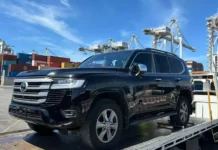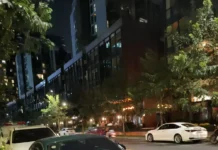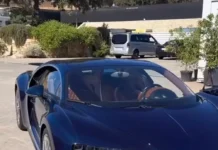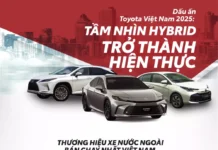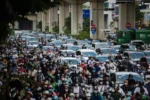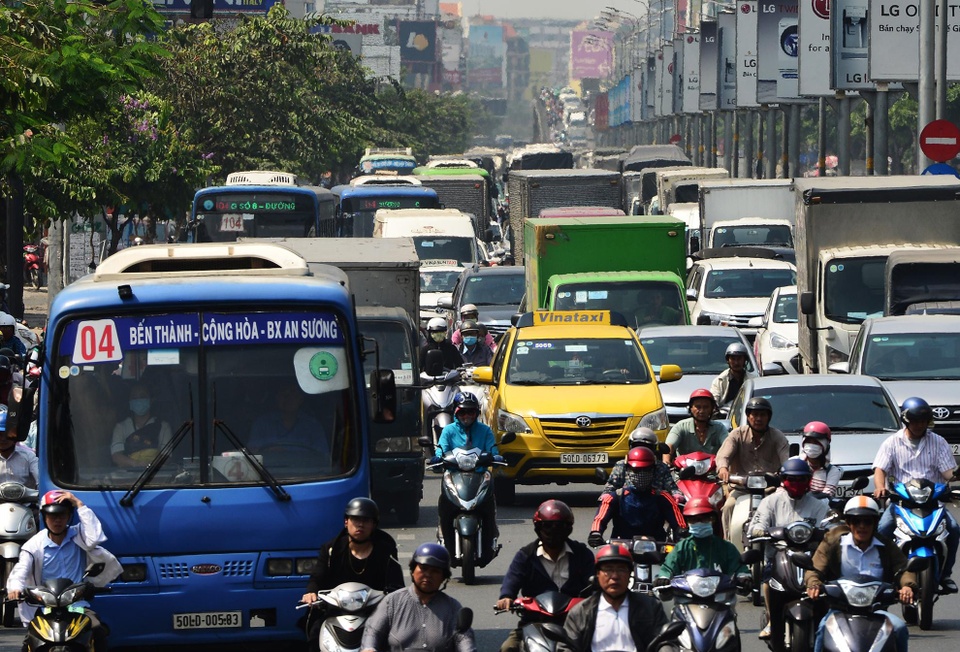
|
Recent social media posts have sparked discussions about a potential ban on cars manufactured from 2017 from entering the center of Hanoi. This information stems from a draft proposal by the Ministry of Agriculture and Environment.
Proposed Emission Standards for Vehicles
The Ministry of Agriculture and Environment has released a draft decision by the Prime Minister on the roadmap for implementing national technical regulations on vehicle emissions in Vietnam. The decision outlines five emission standards for vehicles in operation, ranging from Euro 1 to Euro 5 equivalents.
The highest standard, Level 5, sets stringent requirements for vehicle emissions. Cars manufactured from 2017 and registered in Hanoi and Ho Chi Minh City are expected to comply with Level 4 standards from the beginning of next year. Cars produced from 2022 onwards and registered in these two cities will need to meet Level 5 standards from the start of 2027.
The draft also mentions that cars produced before 1999 will be subject to Level 1 standards from the decision’s effective date. From this date, cars manufactured from 1999 onwards will also need to comply with Level 2 standards.
| Production Year | Registered in Hanoi/Ho Chi Minh City | Registered in Other Provinces/Cities | ||
| Emission Standard Level | Implementation Date | Emission Standard Level | Implementation Date | |
| Before 1999 | Level 1 | When the decision takes effect | Level 1 | When the decision takes effect |
| From 1999 | Level 2 | When the decision takes effect | Level 2 | When the decision takes effect |
| From 2017 | Level 4 | 1/1/2026 | Level 3 | 1/1/2026 |
| From 2022 | Level 5 | 1/1/2027 | Level 4 | 1/1/2026 |
| Level 5 | 1/1/2028 | |||
| Source: Draft Decision of the Prime Minister on the roadmap for implementing national technical regulations on vehicle emissions in Vietnam |
It’s important to note that these are still draft proposals, and the specific emission levels and implementation timelines have not yet been officially announced by the Ministry of Agriculture and Environment.
Clarification on the Ban of Cars Manufactured from 2017
In late 2024, Hanoi passed a resolution on implementing low-emission zones (LEZ), which took effect on January 1, 2025. LEZ aims to reduce pollution by restricting the entry of highly polluting vehicles. The resolution includes measures such as banning heavy diesel trucks, limiting or banning cars that do not meet Level 4 emission standards, and restricting motorcycles and scooters that do not meet Level 2 standards.
The pilot LEZ covers two central districts, Ba Dinh and Hoan Kiem. It’s important to clarify that the decision does not imply a complete ban on all cars manufactured before 2017 from entering the center of Hanoi. Instead, it focuses on ensuring that vehicles meet the Level 4 emission standards, regardless of their production year.
|
|
To comply with these regulations, regular maintenance and timely repairs for excessive emissions are crucial for both new and older vehicles. This roadmap also paves the way for the promotion of green vehicles, such as hybrid and electric cars, which produce little to no emissions and are therefore unaffected by LEZ restrictions in major cities.
Overall, the goal of restricting vehicles with high emissions in city centers is to reduce pollution and protect the health of residents in densely populated areas. High levels of pollution in urban areas, largely attributed to vehicle emissions, are a significant concern not only in Vietnam but also worldwide.
Recommended Reads for Your Journey
Our Automotive section offers a diverse range of captivating book titles to accompany you on your travels. Whether you’re embarking on a road trip or simply enjoying a moment of relaxation, these books are the perfect companions for your journey.


